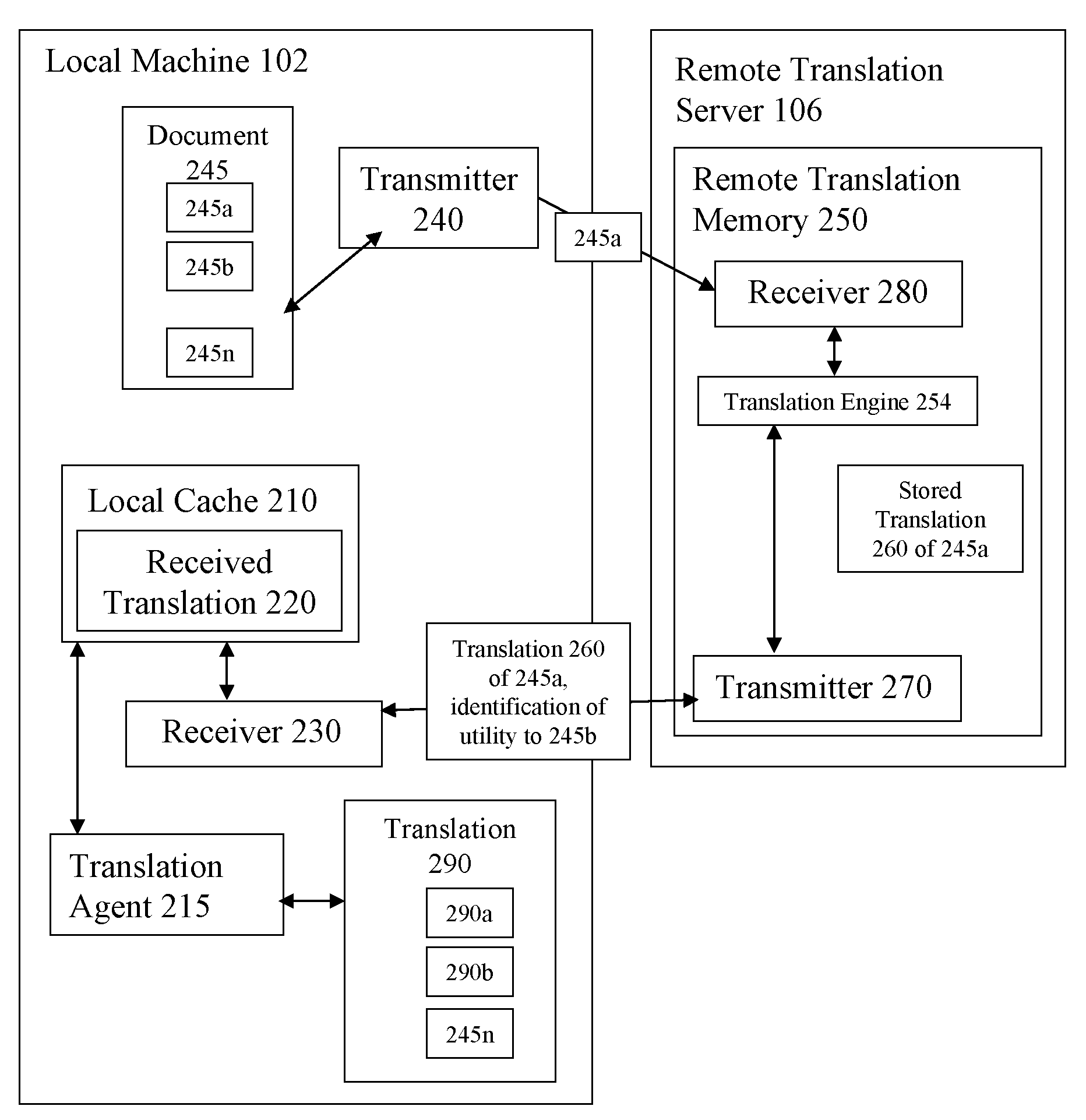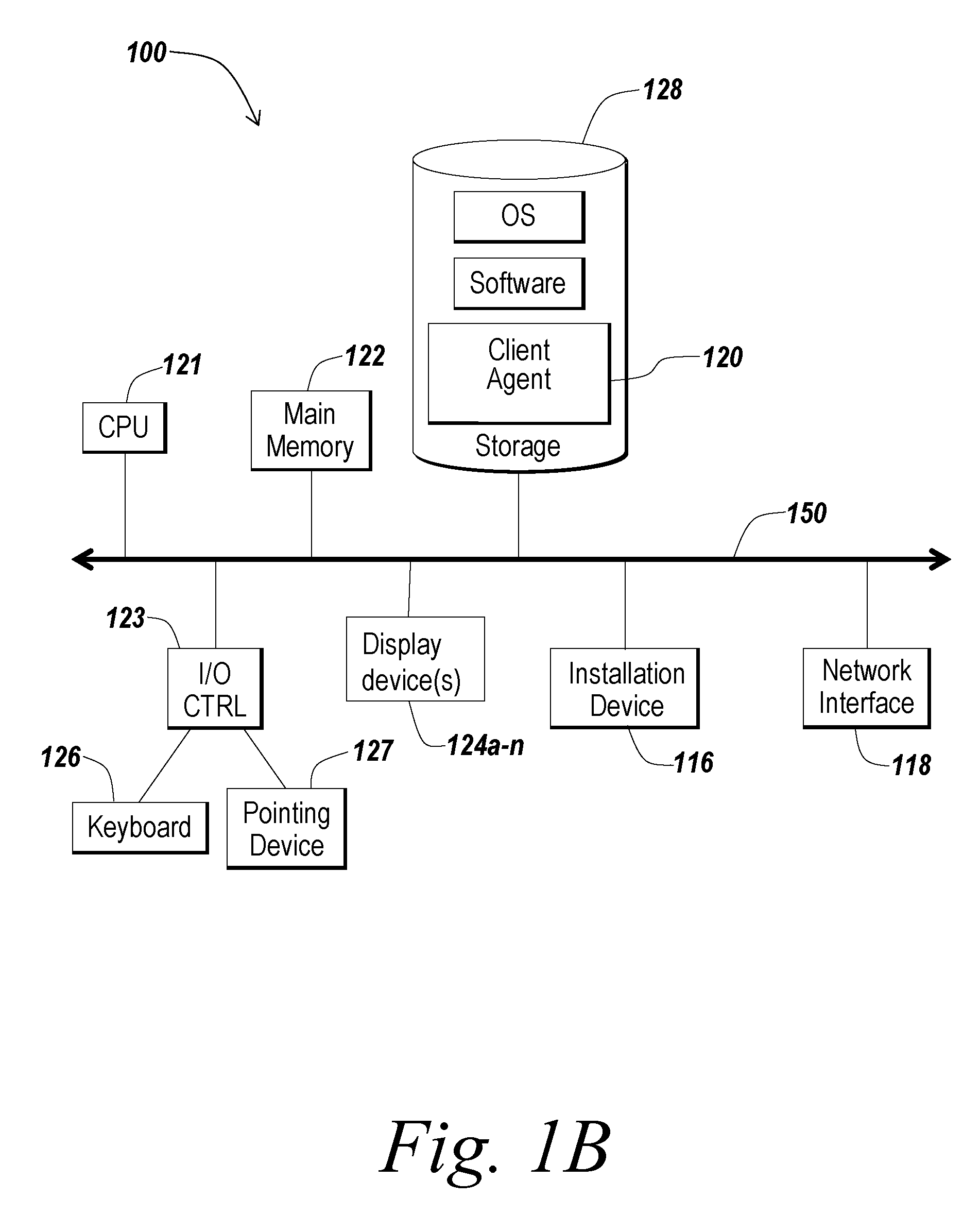Methods and systems for using and updating remotely-generated translation predictions during local, computer-aided translation
a technology of remote translation and localization, applied in the field of local, computer-aided translation using remote translation predictions, can solve the problems of insufficient network bandwidth or storage capacity, affecting the normal use of the system, and requiring a significant amount of tim
- Summary
- Abstract
- Description
- Claims
- Application Information
AI Technical Summary
Benefits of technology
Problems solved by technology
Method used
Image
Examples
Embodiment Construction
[0033]Referring now to FIG. 1A, an embodiment of a network environment is depicted. In brief overview, the network environment comprises one or more clients 102a-102n (also generally referred to as local machine(s) 102, or client(s) 102) in communication with one or more servers 106a-106n (also generally referred to as server(s) 106, or remote machine(s) 106) via one or more networks 104.
[0034]The network 104 can be a local-area network (LAN), such as a company Intranet, a metropolitan area network (MAN), or a wide area network (WAN), such as the Internet or the World Wide Web. In some embodiments, there are multiple networks 104 between the clients 102 and the servers 106. In one of these embodiments, a network 104′ may be a private network and a network 104 may be a public network. In another of these embodiments, a network 104 may be a private network and a network 104′ a public network. In still another embodiment, networks 104 and 104′ may both be private networks.
[0035]The net...
PUM
 Login to View More
Login to View More Abstract
Description
Claims
Application Information
 Login to View More
Login to View More - R&D
- Intellectual Property
- Life Sciences
- Materials
- Tech Scout
- Unparalleled Data Quality
- Higher Quality Content
- 60% Fewer Hallucinations
Browse by: Latest US Patents, China's latest patents, Technical Efficacy Thesaurus, Application Domain, Technology Topic, Popular Technical Reports.
© 2025 PatSnap. All rights reserved.Legal|Privacy policy|Modern Slavery Act Transparency Statement|Sitemap|About US| Contact US: help@patsnap.com



